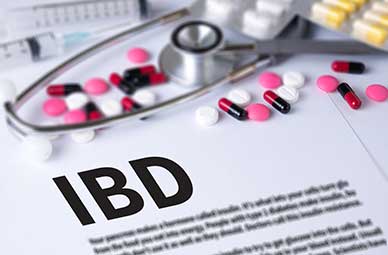Heart disease is the leading cause of early death; it is estimated that over 17 million people die from heart disease every year. The rates of heart disease are on the rise; experts believe that by 2030, over 23 million people will die of heart disease yearly.
One of the most common forms of heart disease is known as coronary heart disease. This condition develops due to a process called atherosclerosis which is when fatty deposits build up in your arteries. This causes the arteries to become more narrow and stiff, impeding the normal flow of blood. Possible complications of coronary heart disease include angina, which is a pain in the chest, and heart failure, which is often fatal. Atherosclerosis by itself costs $448 billion every year in healthcare. However, advancements in our medical understanding of atherosclerosis have revealed that the detrimental process is not only due to fatty buildup but also has a prominent inflammatory aspect to it.
The Link Between Lutein and Inflammation
 Lutein is a compound that imparts a yellowish color to certain foods. Dietary sources of lutein include broccoli, carrots, corn, kale, oranges, peas, spinach, yellow and orange peppers and egg yolk. Recently, researchers at Linköping University in Sweden published a study in the journal Atherosclerosis that suggests lutein can help mitigate inflammation. Specifically, the study looked at this yellow pigment’s effects on inflammation in heart disease patients. This finding may prove very useful to millions of people who have cardiovascular problems or who are at an elevated risk for them.
Lutein is a compound that imparts a yellowish color to certain foods. Dietary sources of lutein include broccoli, carrots, corn, kale, oranges, peas, spinach, yellow and orange peppers and egg yolk. Recently, researchers at Linköping University in Sweden published a study in the journal Atherosclerosis that suggests lutein can help mitigate inflammation. Specifically, the study looked at this yellow pigment’s effects on inflammation in heart disease patients. This finding may prove very useful to millions of people who have cardiovascular problems or who are at an elevated risk for them.
Researchers conducted the study by recruiting 193 volunteers with coronary artery disease. They measured the participants’ blood lutein levels as well as their levels of an inflammation marker known as interleukin-6. Upon analysis of the data, the scientists found that the higher your levels of lutein, the lower your inflammation marker levels will be. This suggests that starting to consume more lutein could positively affect inflammation that already exists.
Though more research is needed, there is some potential that lutein’s ability to promote healthy inflammatory processes could also be helpful for inflammatory disorders like asthma, rheumatoid arthritis and Crohn’s disease.
The Additional Benefits of Lutein
Along with other dietary nutrients like folic acid and fiber, lutein is beneficial to the health of your blood vessels. One study looked at the effects of lutein on 65 people who had “early atherosclerosis,” which is atherosclerosis in a person under the age of 59. Researchers administered either lutein or placebo to the volunteers every day for three months. Blood samples were taken before and after lutein treatment to measure blood levels of the compound.
As with the previously-mentioned study, this study found that lutein decreased levels of inflammatory marker interleukin-6. Researchers also found that levels of another inflammatory marker, MCP-1, were also decreased. Some other benefits of lutein that this study discovered include a 9.4 percent decrease in LDL cholesterol and a 34.6 percent decrease in blood triglycerides.
Lutein may play an important role in eye health. Lutein, among other pigments, protect your eyes’ retinal cells from damaging blue light. Getting plenty of lutein in your diet could help prevent or even treat macular degeneration, an age-related eye disorder that leads to loss of vision. Specifically, eating two to four eggs a day has been shown to increase levels of lutein in your eyes.
Plant-Derived Compounds Similar to Lutein
Besides lutein, there are many plant pigments that provide health benefits. Many of these, including lutein, belong to a family called carotenoids. Carotenoids include such beneficial compounds as beta-carotene and lycopene.
 Good sources of beta-carotene include:
Good sources of beta-carotene include:
- apricots
- broccoli
- butternut squash
- cantaloupe
- carrots
- kale
- peas
- red peppers
- spinach
- sweet potato
Some examples of lycopene sources are:
- asparagus
- carrots
- grapefruit
- guava
- mango
- papaya
- red cabbage
- red peppers
- tomato
- watermelon
Though lutein was the only carotenoid found to have benefits relating to inflammation, the other carotenoids have their own advantages. Beta-carotene is an antioxidant that may slow cognitive decline and may help preserve lung strength in older adults. Lycopene is also an antioxidant, and research suggests it may have benefits for eye, brain, heart and bone health.
The Importance of a Plant-Rich Diet
The various antioxidants found in fruits and vegetables are of great importance. For optimum health, it’s best to make sure you consume a wide variety of fruits and vegetables every day. This way you can receive a wide variety of antioxidants and beneficial compounds, as well as vitamins and minerals. Experts recommend that you eat four to five servings of vegetables as well as four to five servings of fruit daily. Try to eat some from each color group—red, orange and yellow, dark green, light green and blue and purple.
 According to new research, consuming turmeric may act as a powerful preventative measure for diabetes. People who were at risk for diabetes were placed on a turmeric supplement and had their hemoglobin A1c as well as inflammation markers tested at regular intervals. Hemoglobin A1c is a popular measurement that tells doctors how high a person’s blood glucose has been on average for the past three months.
According to new research, consuming turmeric may act as a powerful preventative measure for diabetes. People who were at risk for diabetes were placed on a turmeric supplement and had their hemoglobin A1c as well as inflammation markers tested at regular intervals. Hemoglobin A1c is a popular measurement that tells doctors how high a person’s blood glucose has been on average for the past three months. Turmeric has been found not to just be helpful for diabetes, but for
Turmeric has been found not to just be helpful for diabetes, but for 
 The recommended daily allowance for vitamin A is 3000 IU for adult males and 2300 IU for adult females. Some populations, such as people with diseases of the intestines, pancreas or liver may need much more than this. The foods richest in vitamin A are liver and oily fish. In addition, dairy products are fortified with vitamin A. However, there are also many plant sources. Orange or red vegetables such as carrots, orange squash, red bell peppers and tomatoes also are generous sources of this vitamin.
The recommended daily allowance for vitamin A is 3000 IU for adult males and 2300 IU for adult females. Some populations, such as people with diseases of the intestines, pancreas or liver may need much more than this. The foods richest in vitamin A are liver and oily fish. In addition, dairy products are fortified with vitamin A. However, there are also many plant sources. Orange or red vegetables such as carrots, orange squash, red bell peppers and tomatoes also are generous sources of this vitamin. When it comes to vitamins and sleep, vitamin A appears to affect the circadian rhythm in a different but just as crucial way. Vitamin A is very important to maintaining good vision. This includes differentiating light from dark. As mentioned before, your eyes’ perception of light is crucial to maintaining appropriate melatonin cycles and thus a healthy sleep-wake cycle. Without the ability to perceive light, your brain may release melatonin throughout the day, making you sleepy and fatigued. It ends up that the cells in your eyes that are responsible for perceiving light levels are especially dependent on vitamin A.
When it comes to vitamins and sleep, vitamin A appears to affect the circadian rhythm in a different but just as crucial way. Vitamin A is very important to maintaining good vision. This includes differentiating light from dark. As mentioned before, your eyes’ perception of light is crucial to maintaining appropriate melatonin cycles and thus a healthy sleep-wake cycle. Without the ability to perceive light, your brain may release melatonin throughout the day, making you sleepy and fatigued. It ends up that the cells in your eyes that are responsible for perceiving light levels are especially dependent on vitamin A. If you are interested in sleeping better—and who isn’t?—getting enough vitamins may be an easy first step. Many people in the West have lower than optimal levels of nutrients, in part due to depleted soil. However, there are many supplements and multivitamins on the market that can help you to get enough of all of the nutrients you need. While it is important to eat a varied diet and to get as many vitamins as possible from your food, many people cannot get enough vitamins without taking a multivitamin. In addition, getting enough sunlight is important to metabolizing vitamin D, as well as to maintaining healthy melatonin levels. If you wear sunscreen and avoid direct sunlight to prevent skin cancer, an additional supplement of vitamin D may be necessary.
If you are interested in sleeping better—and who isn’t?—getting enough vitamins may be an easy first step. Many people in the West have lower than optimal levels of nutrients, in part due to depleted soil. However, there are many supplements and multivitamins on the market that can help you to get enough of all of the nutrients you need. While it is important to eat a varied diet and to get as many vitamins as possible from your food, many people cannot get enough vitamins without taking a multivitamin. In addition, getting enough sunlight is important to metabolizing vitamin D, as well as to maintaining healthy melatonin levels. If you wear sunscreen and avoid direct sunlight to prevent skin cancer, an additional supplement of vitamin D may be necessary. Magnesium is a mineral that is
Magnesium is a mineral that is